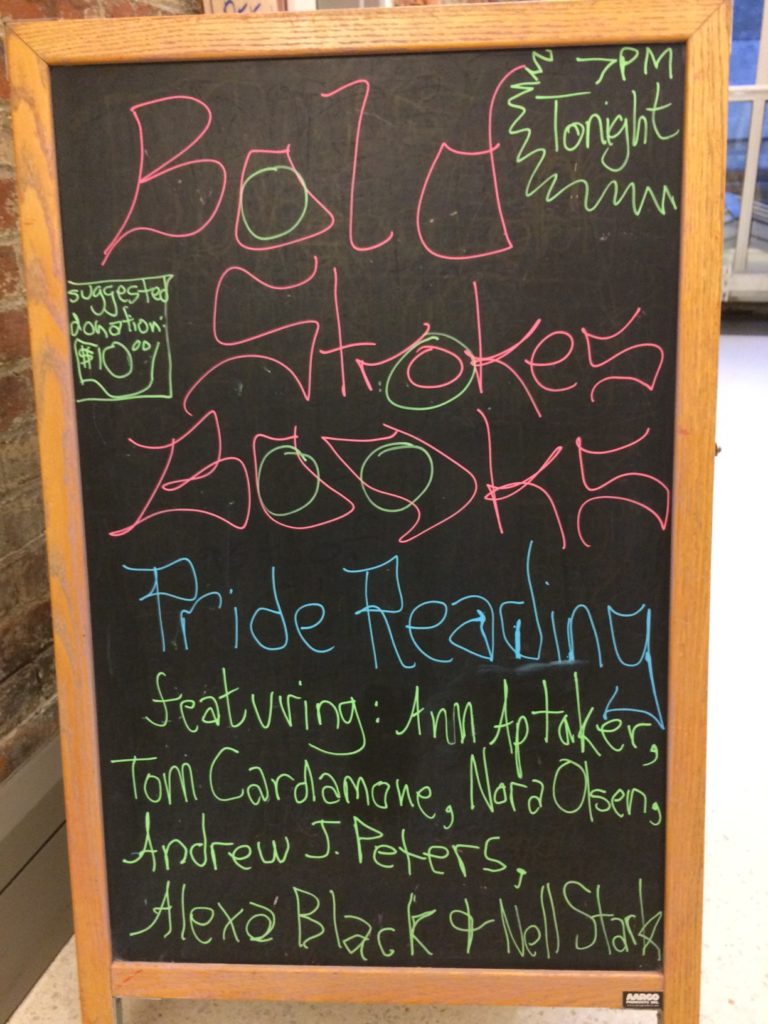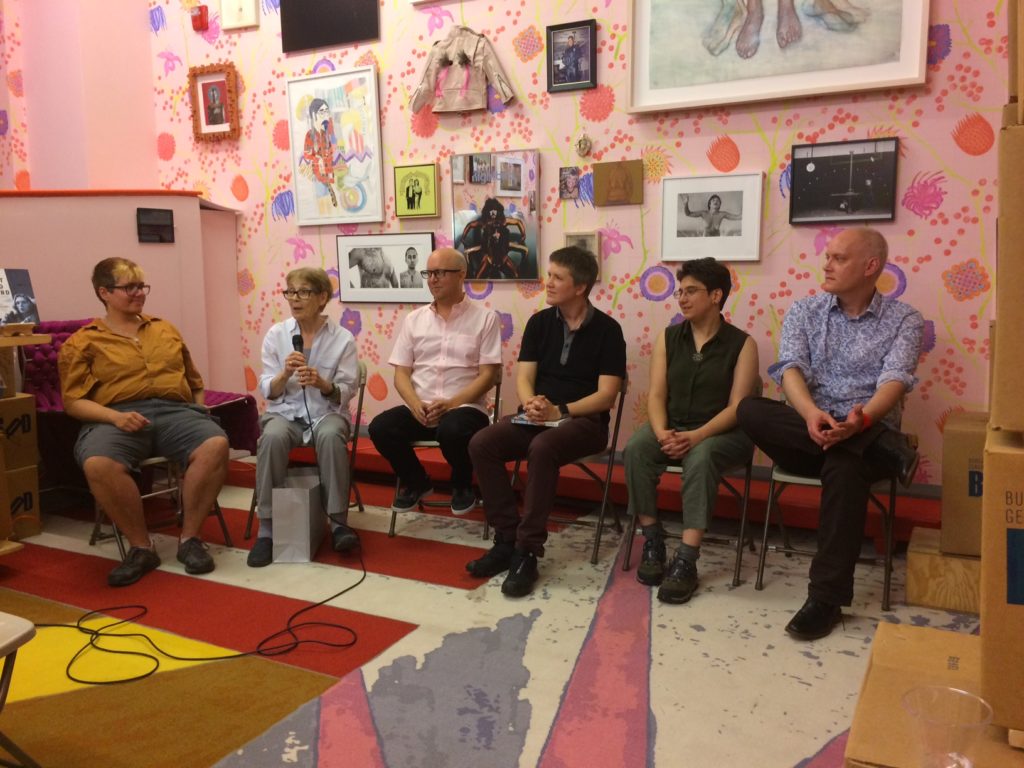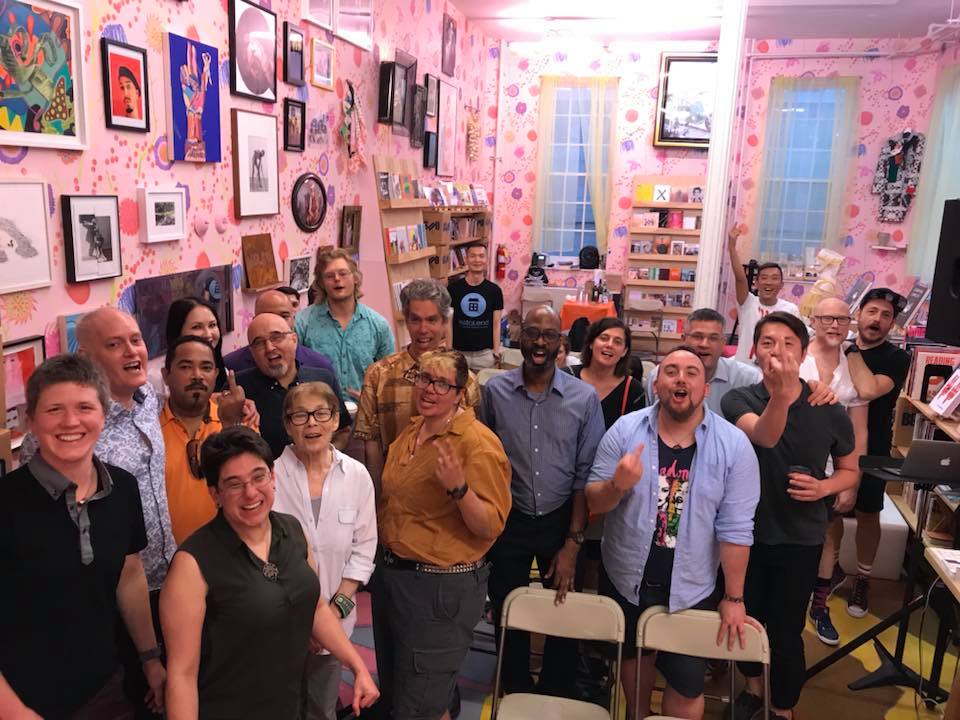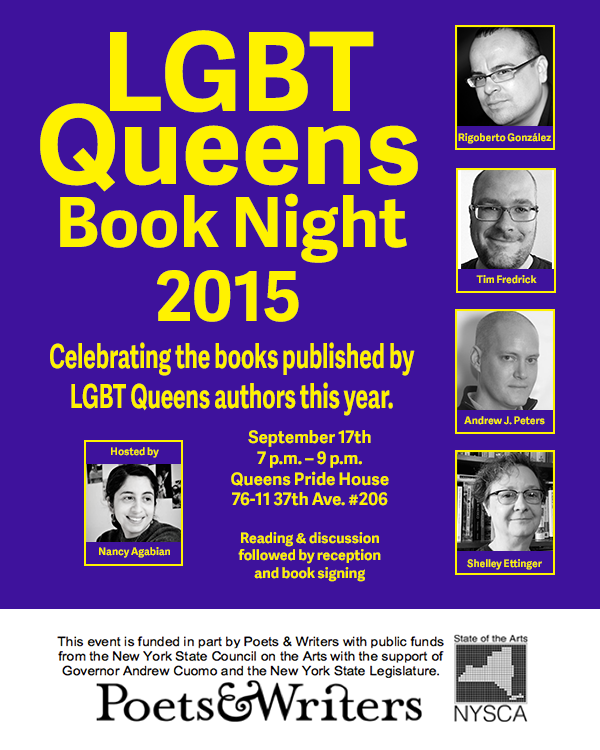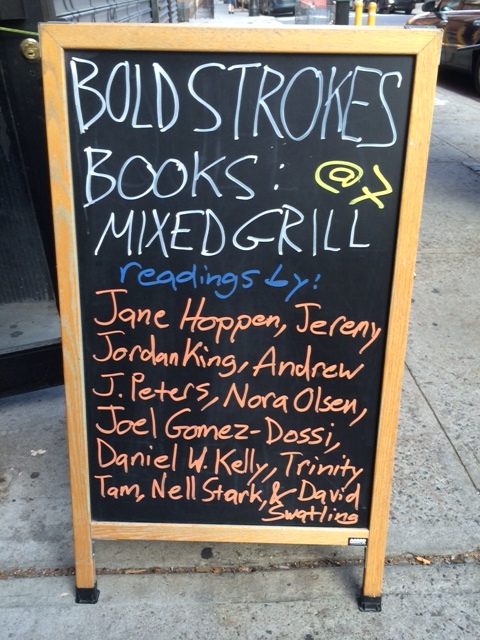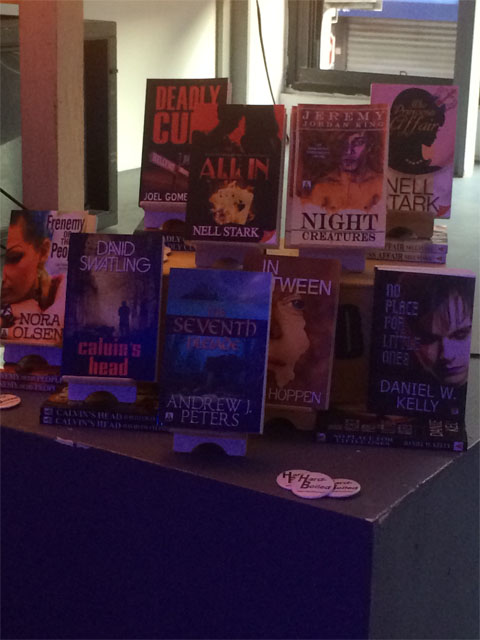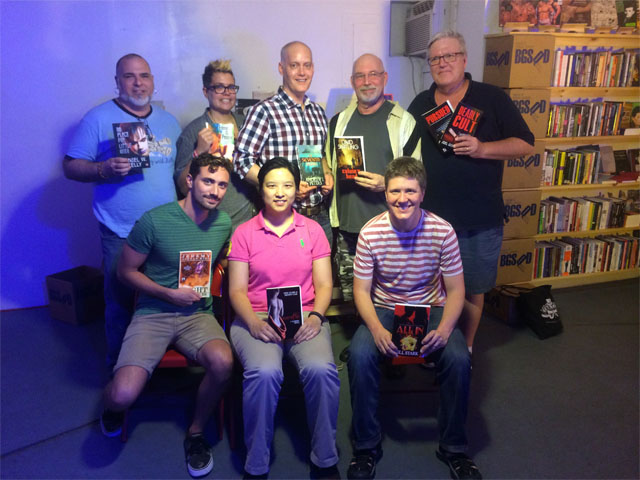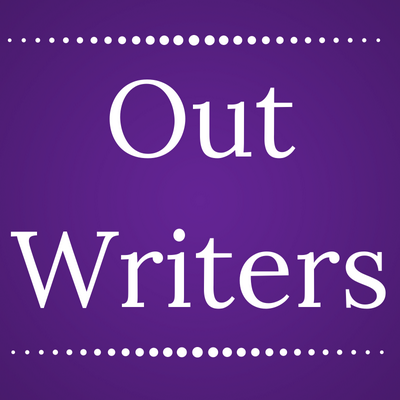I have to credit comic writer Dale Lazarov for getting me started on this topic again. He posted a really interesting viewpoint on his Tmblr last week: “In Continuity: why people complain about the lack of gay characters in mainstream comics and why it isn’t about gay characters.”

Last year’s advertisement for Archie Comics’ issue featuring gay character Kevin Keller’s first kiss
Lazarov talks about gay characters in comics, but it’s the same debate that goes on in YA and fantasy, and other genres I imagine.
Why aren’t there more LGBT people in books? And: what can we do about it?
I wrote on the topic two years ago in the wake of the #YesGayYA kerfuffle. (“Diversifying Books for Teens: #YesGayYA and Beyond.”) My perspective hasn’t changed that much, but Lazarov hit on some points about gay comics that I’ve often felt in regard to LGBT, or what I prefer to call queer literature. I don’t think I articulated that perspective as stridently as I could.
There’s a tendency to judge the progress of queer visibility by the changes that occur in mainstream publishing. We chart progress by watching the stylus on a queer seismometer. Everyone gets happy and excited when things register in a big way. We lament that most of the time it looks like a barely rippling line.

A queer seismometer showing an earthquake in queer representations in media; well, that’s my caption taken with liberties
I’ve fallen back on that tendency myself. When Entertainment Weekly ran an article about the cover art for Knopf Books’ upcoming Two Boys Kissing by David Levithan. it felt like BIG NEWS. And I’m not saying that it wasn’t big news. But what Lazarov’s article got me thinking about was how the focus on mainstream publishing obscures and — dare I say — marginalizes the longtime efforts of indie publishers, their authors, and self-published authors.
Solutions to the perceived lack of queer books can also do the same thing; and here’s where it can get especially aggravating for queer authors and artists, as Lazarov notes. The common refrain is: if you want to see more queer books, you should buy more queer books. When publishers see sales, they’ll produce more of the books you want.
I’m all for people buying more queer books. But as a strategy for cultural equality, I find it a bit hollow and patronizing. Readers who like books about queer people already buy them. Shelling out our dough to Random House and HarperCollins for their few queer titles hasn’t made much of a difference. We make up 1-2% of their market.
Queer titles crossing over to non-queer readers has made a difference; and by “a difference,” I mean a tiny increase in the number of titles that come out each year by mainstream publishers. We need to acknowledge why that cross-over has happened. It’s because of broader social and cultural changes, well beyond the world of books, and made possible by a much bigger movement of activism by queer people and our allies. Straight readers (especially young straight female readers) are more comfortable reading queer stories.
I predict that the Supreme Court decision on DOMA will have a significant impact on the number of queer titles from mainstream publishers in future years. That landmark political change will have much more impact than any buying campaign by the 1-2% of us who are hard core queer lit fans. My second prediction: those mainstream releases will tend to deal with gay and lesbian couples getting married, and tend to be essentially books for non-queer readers – with straight heroines and heroes and gay or lesbian secondary characters.
So what about the 1-2%? This is a estimate that I arrived at considering: (a) most hard core queer lit fans are queer, and queer people are only 2-10% of the population according to most studies; (b) deduct at least half of the percentage points since, like our non-queer counterparts, the majority of queer people don’t read at all; (c) deduct a couple more percentage points since some queer readers aren’t particularly interested in queer literature anyway; (d) add a percentage point or two for non-queer people who mostly read queer literature.
I was tempted to invoke the slogan: We are the 1%! But I’ll restrain myself. 
The good news that we don’t hear about enough is that there are many (hundreds? thousands?) of queer titles published and self-published every year. Try doing a search at Amazon. When I typed in “gay fantasy” just today, it turned up 5,341 titles. Scrolling through the first few pages, the vast majority of them were published by small presses or they were self-published.
Side note: Those first few titles also leaned heavily toward romance, so there may be fewer books with fantasy as their major theme and/or you have to search a little harder for them.
Queer presses and self-pubbed queer authors are creating cultural equality. With the growth of digital publications and on-line booksellers, the access point has widened dramatically. Lazarov says: “If you don’t see what you want to see in comics, make your own fucking comics.” (And he means the last part quite literally you’ll understand if you peruse his work). 
I would add to that: if you want more stories about transgender people, lesbians, bisexuals, gay men, etc., do something to support LGBT political equality. Political equality and cultural equality are intertwined.
I know that many queer and ally authors are fighting the battles in and out of our manuscripts, so you can call me out on preaching to the choir. I guess what I’m getting at is that it makes more sense to me to frame the discussion in our own terms. We’ve got a fabulously talented community of authors and artists turning out high quality and diverse queer stories. Many of us have been doing the work for decades that has enabled queer characters to appear on the covers of mainstream books and comics.
